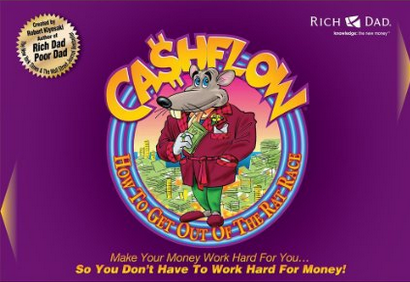Whenever I hear someone say investing is risky, I know they don’t understand infinite returns.
I also know they are one or more of the people below simply because of the thoughts.
- A person with low Financial IQ
- A person who never invested before
- A person who is not in control of their emotions
- A person who constantly loses money
- A person who fears loosing
- A person who always wants to win, but never wants to lose
- A person whose money is still in the game
In response to their answer I often say “Investing is not risky, it’s the investor who is risky.” Not liking my reply, they often walk away whispering underneath their breath.At times I wish they would challenge my response and ask me to explain.
As you might have guessed, this rarely happens, but thanks to this blog I have an opportunity to explain for those who want to learn. You see, there is always risk when you invest, but you don’t have to be risky. Acknowledging theres risk, your education better be on point.
A true investor wants to keep an investment, plus get their money out the investment as quickly and safely as possible. They refer this is as their exit strategy, and if you don’t have one you’re toast.
An uneducated investor leaves their money in the investment not acknowledging that markets do change directions.
The following example can be done with any investment, but in this over simplified example I will use AT&T stocks with options strategies to explain.
Let’s say you wanted to own shares in AT&T (stock symbol T) but you only have $500. Now let’s say bad news caused the share price to drop below its 52 week range at $25 on support level (A price where the stock struggles to decline further, and more likely to rebound).
Knowing that the stock usually trade between $27 to $31 you realized this was a great opportunity to buy. Noticing this opportunity you went to purchase 10 shares of AT&T for $25 a share (25×10= $250 not factoring broker fee for the sake of this example).
But wait, you also viewed the option market and saw a 3 month “in the money call option” selling for $0.25 and purchase 10 call options (betting the stock will move up). Since one option controls hundred shares, my transaction looks like this ($0.25x10x100= $250 not factoring broker fee).
As the stock moves back to its trading range my call option I purchase will begin to increase in value.
You may notice its value increasing from $0.25 to $0.35 to $0.40, and etc. The more the stock continues to climb upward the more you’re option climbs also.
Now let’s say the stock reaches its normal trading range of $27 making your option worth $1.75. At this point you could sell it for $1.75 and your transaction would look like this ($1.75x10x100= $1,175 not including broker fee).
There are several important factors to notice with this transaction.
- You bought the stock when it crash.
- You bought a good company below its 52 week trading range at a better price.
- You sold your option for $1,175 so your $500 original investment is back in your pocket. Plus you profited $675 ($1,175-$500= $675).
- You never sold AT&T stock. You only sold your AT&T call options insurance to someone else.
- You just achieved infinite return because your money is back in your pocket, while still owning AT&T stock.
- The stock pays a dividend (a pay check) which makes you a bigger winner.
The point is, it’s not the investment, but the investor’s knowledge of the investment that made this possible.
Like I stated before, investing is not risky it’s you as the investor that is risky. Your knowledge determines most of the risk.If you don’t know much about the investment, or have a strategy in place to get your money back, it’s best you pass on the investment.
As always, don’t forget to subscribe to my weekly articles, and please get educated in the asset class of your choice.
Investing is a subject you can learn for the rest of your life. So keep getting educated. Hope this help clarify this topic.
 Posted in
Posted in  Tags:
Tags: 


